Israel has sent troops into a hospital in war-torn Gaza where it said hostages may have been held, as medics warned the key medical facility was operating in "near impossible" conditions.
The raid came after days of intense fighting between troops and Hamas militants around the Nasser Hospital in Khan Younis - one of the largest medical sites in southern Gaza, and one of the few hospitals that are still operational in the territory.
Israel, which has accused Hamas militants of using hospitals for military purposes, said it was carrying out a "precise and limited operation" at the facility with "no obligation" for patients or staff to evacuate.
Israeli army spokesman Rear-Admiral Daniel Hagari said there was "credible intelligence from a number of sources, including from released hostages, indicating that Hamas held hostages at the Nasser hospital in Khan Younis and that there may be bodies of our hostages" at the hospital.
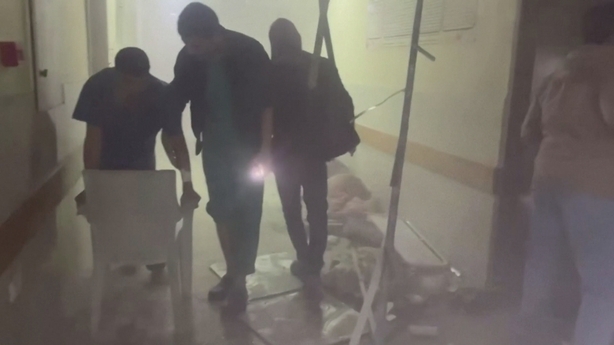
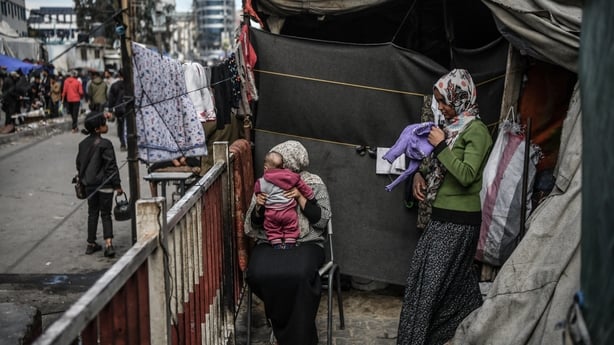
The health ministry in Gaza has reported that thousands of people who had sought refuge at the hospital, including patients, have been made to leave in recent days.
It has called the situation at Nasser "catastrophic", with staff unable to move bodies to the morgue because of the risks involved.
Nurse Mohammed al-Astal told AFP this week that the facility had been "besieged" for a month and was facing deadly sniper fire, sewage in the emergency room, and a lack of drinking water.
Médecins Sans Frontières has warned that its staff there are continuing to treat patients "amid near impossible conditions".
The World Health Organization has described Nasser hospital as a critical facility "for all of Gaza", where only a minority of hospitals are even partly operational.
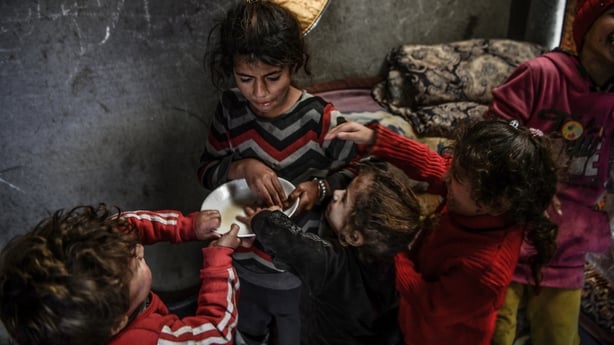
The army, citing intelligence estimates and information from the ground, said "over 85% of major medical facilities in Gaza have been used by Hamas for terror operations".
Roughly 130 hostages are still believed to be in Gaza after the 7 October attack on Israel by Hamas militants, which resulted in the deaths of about 1,160 people, mostly civilians, according to an AFP tally based on official Israeli figures.
Dozens of the estimated 250 hostages seized during the attack were freed in exchange for Palestinians during a week-long truce in November. Israel says 29 of those still in Gaza are presumed dead.
At least 28,663 people, mostly women and children, have been killed in Israel's assault on the Palestinian territory, according to the health ministry in the Hamas-run territory.
Israel launched more deadly strikes on southern Gaza this morning, after Israeli Prime Minister Benjamin Netanyahu insisted it would push ahead with a "powerful" operation in the overcrowded city of Rafah for "complete victory".
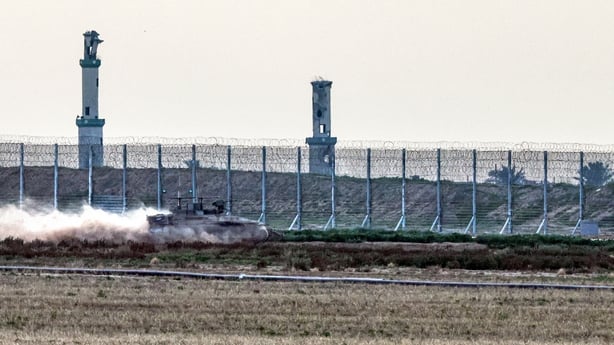
AFP photographs show thick black smoke billowing into the sky over Khan Younis, as Israeli bombardments continue.
Hundreds of thousands of people have been driven into Rafah, seeking shelter in a sprawling makeshift encampment near the Egyptian border.
"We were displaced from Gaza City to the south," said Ahlam Abu Assi. "(Then) they told us to go to Rafah, so we went to Rafah.
"We can't keep going and coming," she added. "There is no safe place for us."
We need your consent to load this rte-player contentWe use rte-player to manage extra content that can set cookies on your device and collect data about your activity. Please review their details and accept them to load the content.Manage Preferences
In a phone call with Mr Netanyahu this evening, British Prime Minister Rishi Sunak called on Israel to fully open the Kerem Shalom crossing to allow for the delivery of international aid to Gaza through Ashdod Port.
"The prime minister highlighted the scale of the humanitarian crisis in Gaza and urged Israel to fully open the Kerem Shalom crossing and allow the maritime delivery of international aid through Ashdod Port," a statement from Downing Street said.
Mr Sunak told Mr Netanyahu that he is "deeply concerned" about the loss of civilian life in Gaza, Downing Street added.
"The Prime Minister said the UK was deeply concerned about the loss of civilian life in Gaza and the potentially devastating humanitarian impact of a military incursion into Rafah," Mr Sunak's spokesman said.
Australia, Canada and New Zealand were the latest to warn Israel not to launch a ground offensive in Rafah, issuing a joint statement saying it would be "devastating" for the 1.5 million Palestinians trapped there.
"There is simply nowhere else for civilians to go," they said.
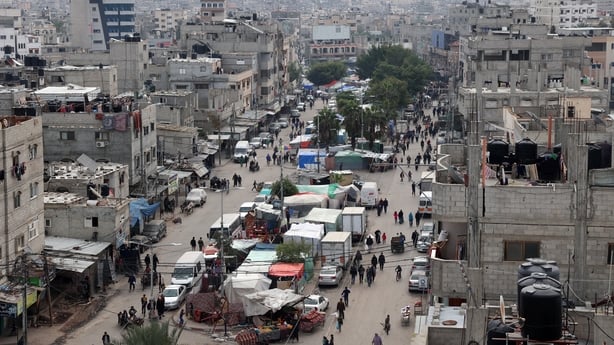
In Cairo, efforts to secure a ceasefire have entered a third day, with negotiators from the United States, Qatar and Egypt trying to broker a deal to suspend the fighting and see the release of the remaining hostages in exchange for Palestinian prisoners held by Israel.
CIA director William Burns joined the head of Israel's Mossad intelligence service for talks with mediators on Tuesday, while a Hamas delegation was in Cairo yesterday.
But there was no sign of immediate progress.
Mr Netanyahu's office said it did not receive "any new proposal" from Hamas about releasing hostages, and Israeli media reported that the country's delegation was not to return to negotiations until Hamas softens its stance.
While he did not comment directly on the reports, Mr Netanyahu said: "I insist that Hamas drop their delusional demands, and when they drop these demands we can move forward."
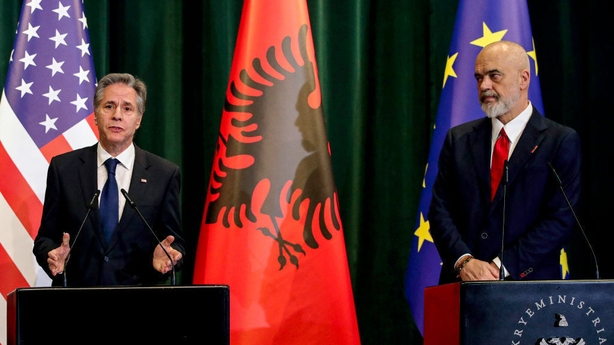
US Secretary of State Antony Blinken said this evening that he believed an agreement on a truce and the release of hostages was still "possible".
"So we're very focused on it and I believe it's possible," Mr Blinken said at a joint press conference with Albanian Prime Minister Edi Rama in Tirana, as negotiations between mediators continue in Cairo.
"We're now in the process, with our counterparts from Qatar, from Egypt, from Israel, in working on that and working very intensely on that, with the goal of trying to find an agreement."
Mr Blinken said there were "some very, very hard issues that have to be resolved.
"But we're committed to do everything we can to move forward and to see if we can reach an agreement," he added.
Palestinian Authority president Mahmoud Abbas, who governs the West Bank, has urged Hamas to "rapidly" agree to a truce and stave off further tragedy for Palestinians.
